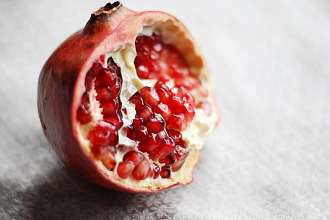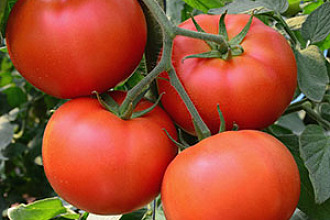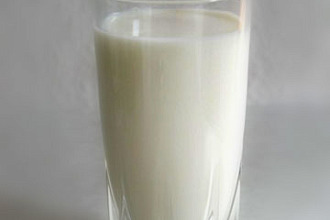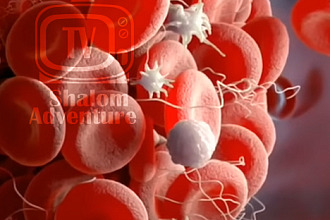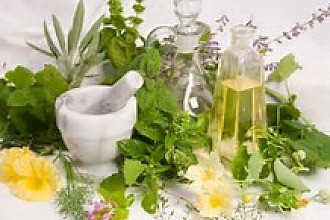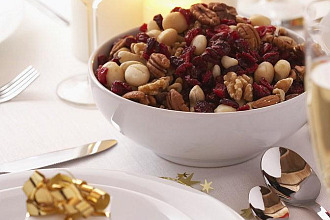If you have (or are at risk for developing) diabetes, hypertension, cancer, or dementia, frequent consumption of berries will improve your health. Here's why.
Cardiovascular Protection
Harvard researchers followed 100,000 young and middle-aged women for 20 years and found that those who ate more than 3 servings of strawberries or blueberries a week reduced their risk for heart disease by 32%. 1
Cardiovascular diseases—atherosclerosis, coronary artery disease, vascular dementia, and hypertension—are caused by much more than accumulated cholesterol and fats in arteries. Oxidation, inflammation, sticky platelets, and reduced ability of the blood vessels to dilate all contribute to these disease processes. The flavonoids and other compounds in berries target each of these problems. As antioxidants, they inhibit the oxidation of cholesterol. This is important because oxidized cholesterol triggers inflammation inside the arteries.
Not only that, their red, purple, and blue pigments (anthocyanins) help to reduce cholesterol synthesis in the body. By inhibiting platelet clumping, they also lower the risk for undesirable clotting and consequently heart attacks and strokes. Plus, the soluble fiber in berries reduces the body's production of cholesterol, decreases its absorption, and removes it from the body.
Diabetes Prevention
During 3,645,585 person-years of follow-up, higher intakes of anthocyanins were significantly associated with a lower risk of type 2 diabetes.2 How?
Berries are low on the glycemic index. The glycemic index measures how fast and how much a food raises blood glucose levels. Since berries rate low on the index, they make an ideal food for individuals who are obese or have either prediabetes or diabetes. Their soluble fiber slows down the absorption of glucose. The polyphenols in blueberries inhibit the enzymes that break down sucrose. Berries also reduce the natural inflammation that occurs after consuming a high fat, high carb diet in overweight individuals.3
Blueberries contain pterostilbene and resveratrol. These phytochemicals inhibit inflammation. This is important because inflammation fuels the many complications of diabetes. Accumulating studies indicate that resveratrol helps to protect diabetic individuals from the many complications of diabetes while other studies show that pterostilbene itself produced a substantial decrease in plasma glucose levels and glycated hemoglobin (hemoglobin A1c).4 This test provides the average of your glucose levels for the last six to twelve week period. When the blood sugar (glucose) is too high, it builds up in the blood and combines with the hemoglobin, becoming "glycated". Elevated hemoglobin A1c increases the risk for diabetic complications.
Cancer Protection
The ellagic acid in strawberries and raspberries help to protect from cancers of the breast, esophagus, skin, colon, prostate, bladder, and pancreas. Ellagic acid:
- activates DNA repair
- increases the liver's carcinogen-detoxification
- arrests proliferation of cancer cells
- inhibits tumor angiogenesis (a mechanism in which new blood vessels are created to feed the tumor
- induces apoptosis (cell suicide) of cancer cells
When consumed daily, blueberries help to protect genomic DNA integrity and can stimulate natural killer cell activity. Blueberries help to protect us from the breast, prostate, stomach, colon, and pancreatic cancers. Blueberries exert cancer-protecting activity (to name just a few) by: 5
- inhibit inflammation
- protect DNA from free radical damage
- inhibit proliferation of cancer cells
- increase the suicide of the cancer cells
Blueberries also have the phytochemical pterostilbene which inhibits two enzymes (MMP-2 and MMP-9) that help cancer cells to invade tissues and spread. This phytochemical also inhibits inflammation, a key player in cancer development.
Brain Protection
Accumulating evidence suggests that frequent consumption of blueberries slows down brain aging. The polyphenolic compounds found in blueberries exert their beneficial effects by reducing free radical damage, protecting brain cells from neurotoxins, and inhibiting inflammation inside the brain—all of which contribute to brain aging and brain disease. By improving signaling and communication between nerve cells, memory is improved.6 Flavonoids in blueberries have actually been shown to reverse age-associated memory and learning deficits in aged animals.7 Blueberry supplementation prevents behavioral deficits in an Alzheimer disease model.
With so many health benefits, why not include them as a stable in your diet? Not in season? Unsweetened, frozen berries will do!
________________________________________
References
- Cassidy, A, et al., High Anthocyanin Intake Is Associated With a Reduced Risk of Myocardial Infarction in Young and Middle-Aged Women. Circulation. 2013; 127: 188-196. ↩
- Wedick NM, et al., Dietary flavonoid intakes and risk of type 2 diabetes in US men and women. Am J Clin Nutr. 2012 Apr;95(4):925-33. ↩
- Ellis, CL, et al., Attenuation of meal-induced inflammatory and thrombotic responses in overweight men and women after 6-week daily strawberry (Fragaria) intake. A randomized placebo-controlled trial. J Atheroscler Thromb. 2011;18(4):318-27 ↩
- McCormack, D, et al., Review of Pterostilbene Antioxidant Activity and Disease. Oxidative Medicine and Cellular Longevity. Volume 2013 (2013), Article ID 575482, 15 ↩
- Johnson SA, Arjmandi BH, Evidence for Anti-Cancer Properties of Blueberries: Anticancer Agents Med Chem. 2013 Jan 24 Proc Nutr Soc. 2010 May;69(2):244-60.↩
- Krikorian R, et al., Blueberry supplementation improves memory in older adults. J Agric Food Chem. 2010 Apr 14;58(7):3996-4000. ↩
- Spencer, J, Beyond antioxidants: the cellular and molecular interactions of flavonoids and how these underpin their actions on the brain. Proc Nutr Soc. 2010 May;69(2):244-60.↩
- Joseph JA, Blueberry supplementation enhances signaling and prevents behavioral deficits in an Alzheimer disease model. Nutr Neurosci. 2003 Jun;6(3):153-62
Shalom Adventure Magazine, is not responsible for this research the source was originally found here. We are providing this for informational proposes only. It is not intended to replace health care advice from a medical professional.









